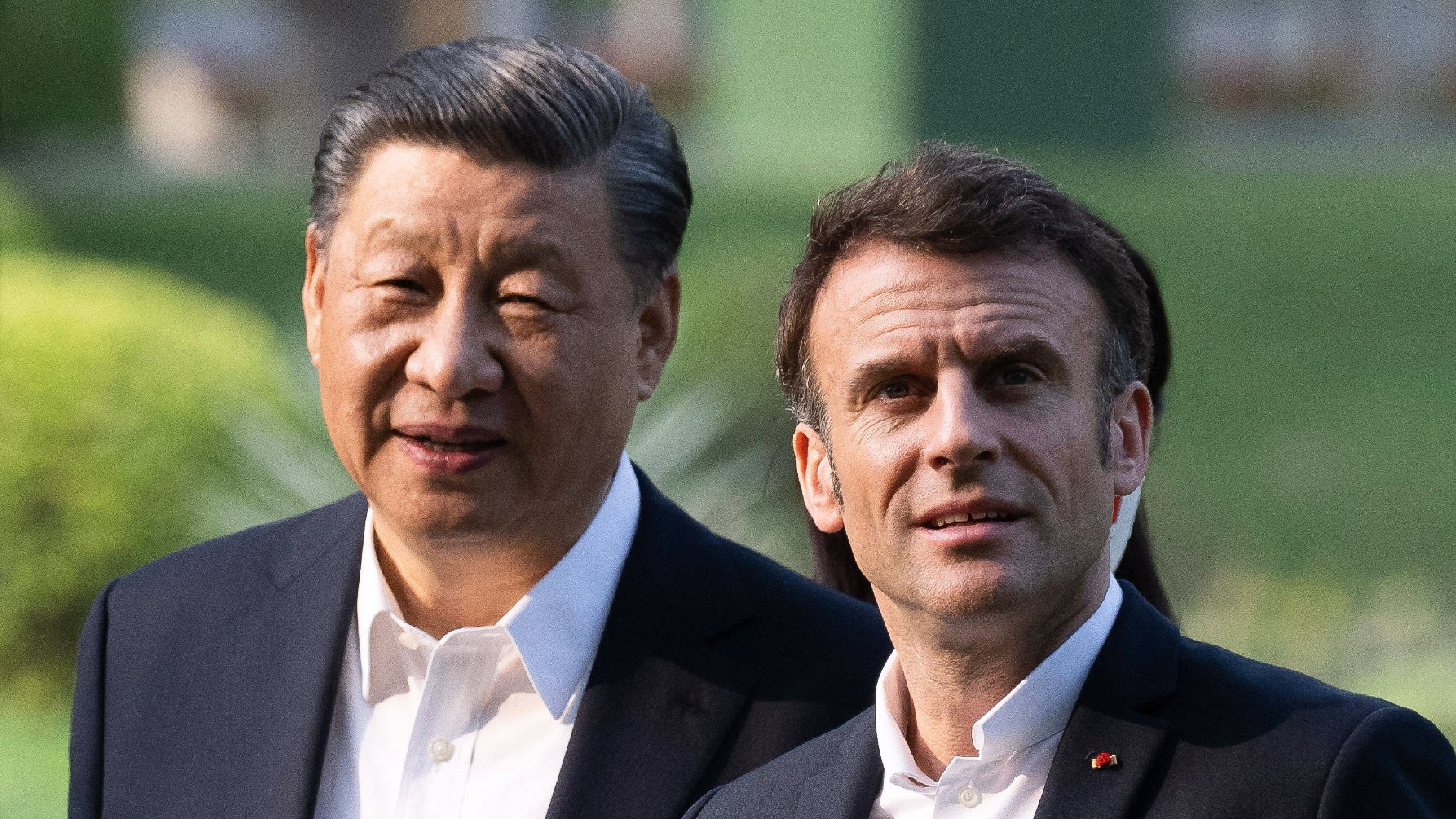Macron’s manifesto: should the EU diverge from US on China?
Rewards of greater ‘strategic autonomy’ must be balanced against risks of weakening transatlantic relations

A free daily email with the biggest news stories of the day – and the best features from TheWeek.com
You are now subscribed
Your newsletter sign-up was successful
Emmanuel Macron has suggested Europe should no longer be a “vassal” to the United States and instead forge its own path when dealing with China.
Speaking after a three-day state visit to Beijing, the French president said Europe must avoid being drawn into any conflict between the US and China over Taiwan and should instead establish itself as a “third superpower” in the world order.
The New York Times said that although the US and its European allies “share similar views on many global issues, and Russia’s invasion of Ukraine has brought them closer, as they coordinate weapons aid, diplomacy and sanctions to help the Ukrainians” there is “still contentious debate in Europe over the right approach with China and over balancing security and trade issues”.
The Week
Escape your echo chamber. Get the facts behind the news, plus analysis from multiple perspectives.

Sign up for The Week's Free Newsletters
From our morning news briefing to a weekly Good News Newsletter, get the best of The Week delivered directly to your inbox.
From our morning news briefing to a weekly Good News Newsletter, get the best of The Week delivered directly to your inbox.
Greater ‘strategic autonomy‘
Macron has repeatedly stressed the need for Europe to establish greater “strategic autonomy”, and used his recent visit to try and persuade Chinese President Xi Jinping to pressure Russia to end its invasion of Ukraine.
He was joined by 50 French business leaders, highlighting a “focus on maintaining, if not strengthening, economic ties to China, even as the US has for months warned that Beijing is considering sending weapons to Russia for use in its war in Ukraine”, said The Hill.
As things currently stand, “Europe’s primary strategic concerns revolve around Russia’s war of aggression against Ukraine and its consequences for the continent”, Alicja Bachulska, policy fellow at the European Council on Foreign Relations (ECFR), wrote in Carnegie Europe.
“In this context, growing US-China rivalry has evoked fear among many Europeans that Washington’s strategic rebalancing toward the Indo-Pacific might leave the EU more vulnerable to outside pressure, both military and economic.”
A free daily email with the biggest news stories of the day – and the best features from TheWeek.com
For the EU, “the situation is particularly delicate”, said the French Institute of International Relations.
“Europe is in the Western camp, but a severing of ties with Beijing would cause a crushing economic blow”, with China accounting for more than 20% of the EU’s imports in 2022 compared to around 12% for the US.
By 2030, the EU’s GDP is expected to rise to $20.5 trillion, compared to $30.5 trillion for the US and $33.7 trillion for China, prompting Ursula von der Leyen, the head of the European Commission, to declare earlier this year that the EU will “still need to work and trade with China, especially when it comes to this transition. So, we need to refocus our approach on de-risking, rather than decoupling”.
‘Dangers of divergence‘
“While the Biden administration and lawmakers on both sides of the aisle describe Xi as working to reshape the world in the view of China’s authoritarian model, European leaders are less unified on the risks versus rewards of close ties with Beijing”, said The Hill.
Macron’s love-in with Xi contrasted with the visit of von der Leyen a week earlier, when she said the Chinese leader “essentially wants China to become the world’s most powerful nation”, and that had been accompanied by a “deliberate hardening” of China’s strategic stance, with the country becoming “more repressive at home and more assertive abroad”.
“European incoherence is worrying”, said the Japan Times but “music to Chinese ears”.
“Beijing is eager to exploit those differences to dilute any consensus on China policy within Europe and widen gaps between it and Washington to prevent the emergence of a unified position toward China,” the paper said.
For its part, Beijing has “enthusiastically endorsed Macron’s concept of strategic autonomy”, said Politico. “Chinese officials constantly refer to it in their dealings with European countries. Party leaders and theorists in Beijing convinced the West is in decline and China is on the ascendant and that weakening the transatlantic relationship will help accelerate this trend.”
China may currently be pursuing a charm offensive towards Europe “in the hope of restoring strained relations with the continent fraught by economic and energy crises,” but Beijing’s ultimate goal “is to distance the EU from the United States in order to prevent the forming of a more comprehensive transatlantic policy toward China”, said the ECFR’s Bachulska.
“If Europe wants to influence US-China rivalry in any substantial way, it should not give into the temptation of returning to business as usual in its relations with Beijing,” she concluded.